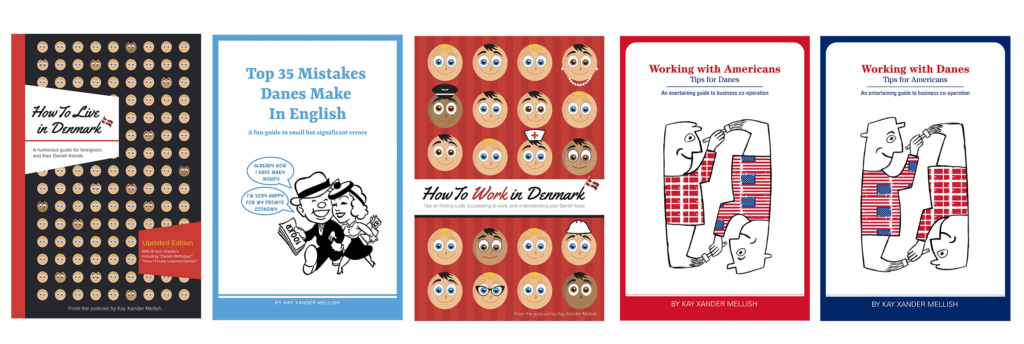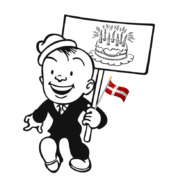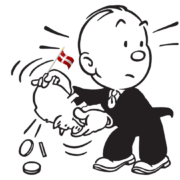Debt in Denmark
January, February, and March are some of the dreariest months in Denmark – it’s dark, with no Christmas lights to pep it up – and many people are dealing with a heavy load of year-end debt from travelling, parties, dining out, and gifts.
Along with religion, personal finances (privatøkonomi, which many Danes insist on directly translating to “my private economy”) is a topic that is rarely discussed in Denmark. But the country has one of the highest rates of household debt in the world.
And once you get into debt in Denmark, it can be very difficult to get out.
Mortgages, credit cards, text-message loans
Much of the debt in Denmark is mortgage debt, since buying a home has tax advantages and prices in the big cities are six times what they were 20 years ago.
But there is also credit card debt and bank overdrafts, plus the no-money-down quick loans that until recently were advertised all over public transport. The loans still exist, even if the ads don’t, and they seem to be directed at young men with low impulse control. Just send us a text and get that electric guitar and new gaming system right away! Don’t wait!
And the very worst debt, in my opinion, which is tax debt.
Owing the Danish government
Tax debt is what you get if you get a raise during the year and forget to tell the tax department to start deducting more. If you don’t, you’ll get a big bill in March of the following year, as I found out in a panic one year when I had to empty my savings to pay it.
Tax debt is part of the bigger category of “debt to the state”, which also includes student loan debt, outstanding day care bills, or unpaid fines for not having the right ticket on the train. Danes owe more than DK123 billion kroner to the state, a number that’s doubled since 2005.
What all these debts have in common is that you will have to pay with after-tax kroner. That means if you put your nose to the grindstone and dedicate yourself to earning more money to pay off the debt, you will also accumulate more taxes owed. It’s a hamster wheel of misery.
National database of debtors
As an international, you may have a different approach to paying bills than is common in Denmark.
In many cultures, the first bill is just a suggestion, and the second 30 days later is a reminder, and you don’t really have to pay until you get that one with the big pink line across the top saying final notification.
Not in Denmark. If you don’t pay a bill the first time you receive it, it will be back within 10 days with a hefty “late fee” on top. After another couple of weeks, there will be another demand and another late fee, and then finally “inkasso”, a debt-collection service that is supposedly not run by Danish gangsters, but might be, depending on whom you owe your debt to.
You might also be listed in RKI, the nationwide database of people who owe money. Every big company in Denmark subscribes to RKI, which means that if you’re listed in the database you’ll have trouble getting an apartment, job, gasoline card, or mobile-phone contract.
That’s a lot of headaches for an unpaid electricity bill.
Denmark is an expensive place to live
Running into debt in Denmark is understandable; it’s an expensive place to live. I frequently get mails from internationals who have been offered jobs in Denmark and want to know – on this salary, how much will I be able to save?
To start with, I tell them to contact the tax department to find out how much take-home pay they’ll have once their Danish taxes kick in.
Then it’s a matter of lifestyle. Do you need to drive a car, or will you be able to survive with just a bicycle? How big a home do you need? How new a phone do you need? Are cigarettes, pharmaceuticals, alcohol, or take-out meals among your expenses? Do you like to travel or dine in restaurants?
Even if you live like a monk or nun, there are some levels that are difficult to go below.
One fellow wanted to know if he’d be able to support his spouse and three kids on Dk2500 a month after rent.
He was, unsurprisingly, from a country that did not experience Northern European winters. Five all-year wardrobes including five winter coats, gloves, and hats, plus five pairs of winter boots, three of which will have to be constantly replaced as the children grow? Five bicycles with tires that puncture at precisely the wrong moment? At least two phone contracts, at least three birthday parties, plus gifts for all their fellow students’ birthday parties?
Good luck, sir. Welcome to debt.
[icon name=”facebook-square” class=”fa-3x”] [icon name=”twitter-square” class=”fa-3x”][icon name=”instagram” class=”fa-3x”]
.
.
Buy Kay’s books about Denmark on Amazon, Saxo, Google Books, Apple Books, Barnes & Noble Nook, or via our webshop.
Read also:
Decoding your Danish pay slip and understanding your Danish taxes
Danes and Taxes: “I’m Happy to Pay”
Saving money on food in Denmark





This is a really greats article. As a young person I feel this is not discussed enough. Also young people in Denmark are so used to SU that when your only income becomes your fulltime work income much, its difficult to control your spending. I lived in the UK before and I feel saving there is so much easier. I didn’t care so much about my clothing and was low maintenance. Coming to Scandinavia had been much harder. Also eating out at expensive places is common here whereas with my friend in the UK we’d go to a fast food place or student cafe. Also Scandinavians love to travel and remodel their homes. It’s not surprising people are dealing with debt.
Hi.
Great article as always.
My nitpicking organ is fiercely itching though, and I really have to do this. Sincerest apologies in advance:
1: There’s no “d” in inkasso.
2: Actually – being a Dane by birth and never lived in USA – I might be wrong on this one, but when I read “national database” I take it to mean “run by some public agency”. “Federal” might be a suitable USA-system translation.
If this is – indeed the intended meaning – then you are slightly off, as RKI – Ribers Kredit Information – was a public company – now owned by Experian. Not that it matters much if you’re in debt 😉
I have Lived in DK for over 10 years and have good credit in DK but my partner who is still living in the US has bad credit in the US. He is moving here soon and we are moving into an apartment together under both our names. Will the credit check RKI also be able to see his credit rating in the US? We have to give permission to our landlord if we want both names on the contract